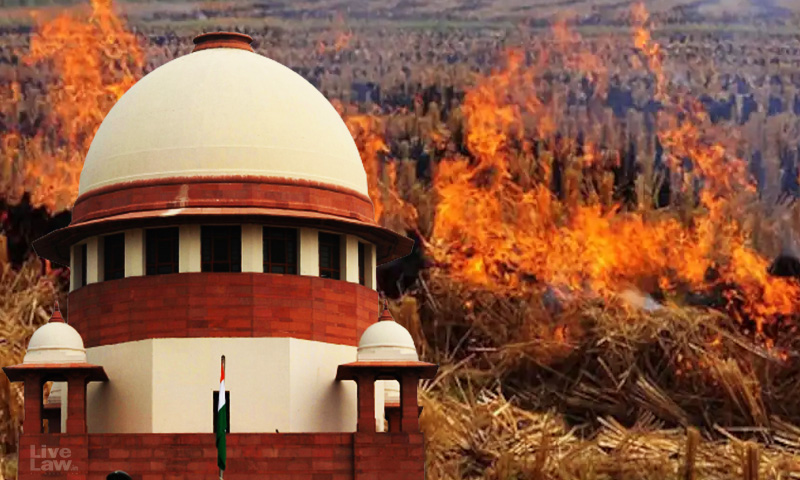 |
|
The Supreme Court of India has delivered a resounding judgment regarding the practice of stubble burning, emphasizing its detrimental impact on the environment and its violation of fundamental rights. The court has declared that stubble burning not only breaches environmental laws but also constitutes a violation of the fundamental right to a pollution-free environment, as enshrined in Article 21 of the Indian Constitution. This declaration underscores the gravity of the issue and the urgent need for effective measures to address it.
The court's ruling stemmed from the ongoing MC Mehta case, which focuses on air pollution in the Delhi National Capital Region (NCR). The court's criticism was directed towards the states of Punjab and Haryana, which are major contributors to stubble burning. The court expressed its dissatisfaction with the lax enforcement of existing laws and regulations aimed at curbing this practice. The court highlighted that while both states claim to be actively monitoring and taking action against violators, their actions have been inadequate and selective. They have imposed nominal fines on most violators, effectively granting them a license to continue burning stubble. This lenient approach, the court argues, undermines the very purpose of the regulations and fails to deter farmers from engaging in this harmful practice.
The court specifically pointed out the inconsistency in the enforcement of penalties. While some individuals were arrested, others were merely fined, raising concerns about a lack of transparency and fairness in the implementation of environmental laws. The court also questioned the political motivations behind the reluctance to prosecute farmers, suggesting that the fear of backlash from the farming community might be influencing the states' enforcement strategies. In a bid to address the issue of financial constraints faced by farmers who are compelled to resort to stubble burning, the court has directed the central government to promptly consider and approve Punjab's request for additional funds. These funds will be used to provide tractors, drivers, and diesel to small farmers, thereby enabling them to adopt alternative and environmentally friendly methods of stubble management.
The court's judgment carries significant weight and serves as a strong reminder to both state and central governments of their responsibility to protect the fundamental rights of citizens. The ruling reinforces the urgent need for comprehensive and effective measures to address the issue of stubble burning. This includes strict enforcement of existing laws, providing adequate financial assistance to farmers to enable them to adopt sustainable practices, and promoting public awareness about the harmful impacts of stubble burning on the environment and public health. The court's directive to the central government to provide funds for alternative farming practices is a step in the right direction, but it remains to be seen how effectively the government will implement these measures and hold the states accountable for ensuring compliance with the law.
